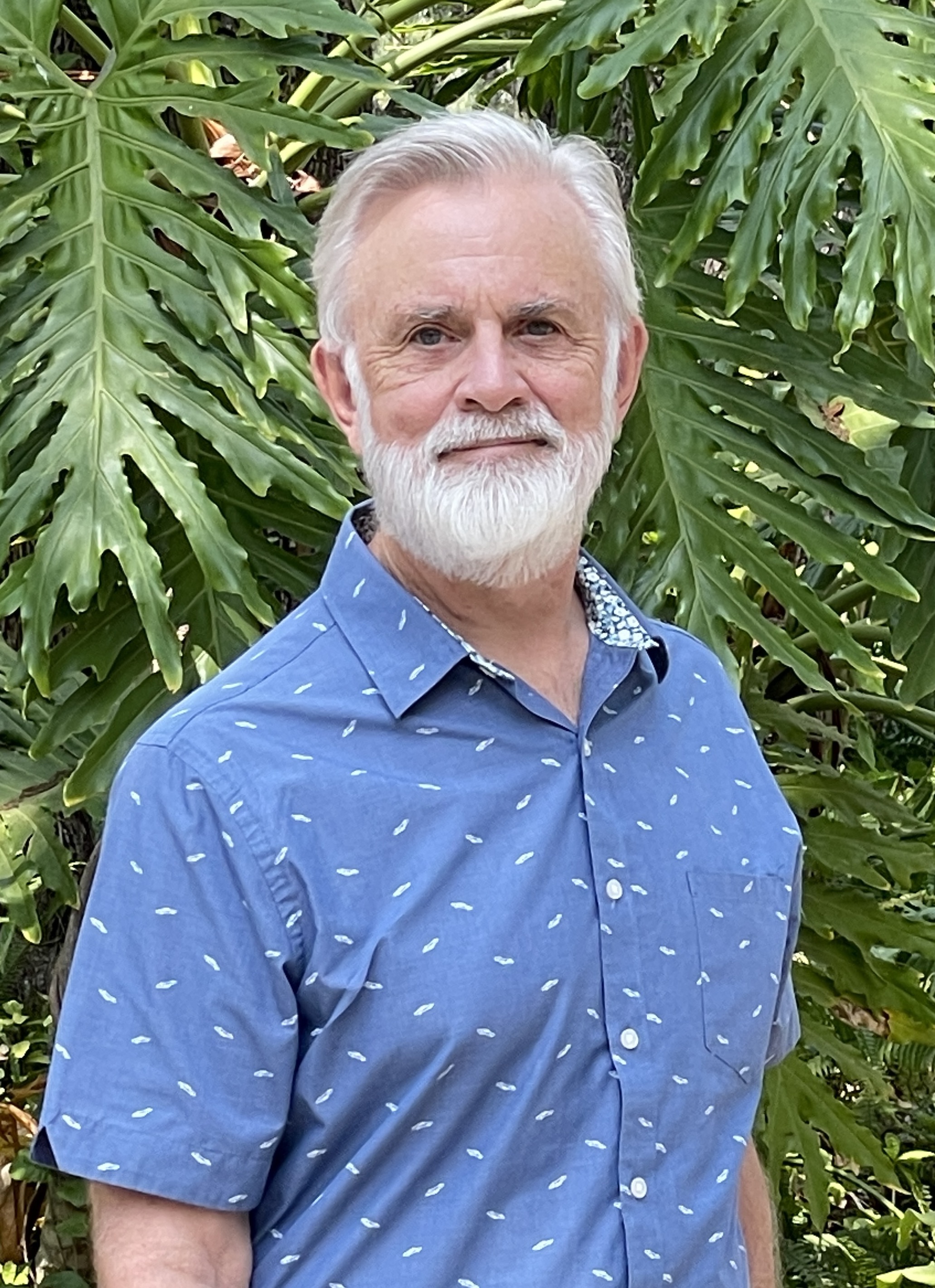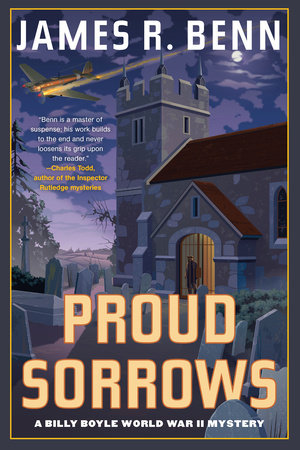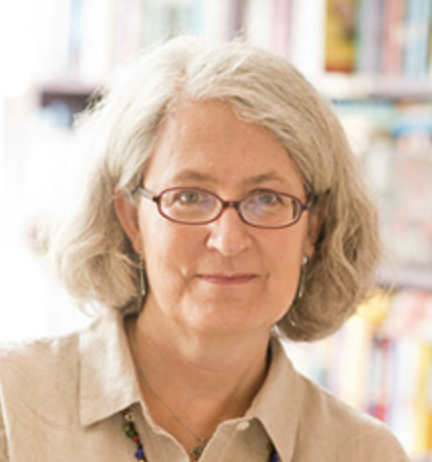
Photo by JB Lahmani
Multi-hyphenate Nat Segaloff has been a film critic, a reporter, a broadcaster, a TV producer (A&E’s Biography, etc.), a college instructor—that’s a short list—and, oh yeah, has written several dozen books. They include a tome on etiquette (never send an email when you’re mad!), another on tall tales and legends, but predominantly concern movies and moviemakers.
The latest, The Exorcist Legacy: 50 Years of Fear (2023, Kensington), is a deep dive into the film that left an iconic and devilish imprint on popular culture, and which benefits from the author’s longtime personal associations with filmmaker William Friedkin and author William Peter Blatty, who wrote the 1971 bestseller on which The Exorcist is based, and its Oscar-winning screenplay adaptation.
Segaloff’s own ties to The Exorcist date to the film’s December 1973 opening—when, as the publicist for a chain of theaters, he helped arrange a special advance screening. Years later Segaloff authored Hurricane Billy: The Stormy Life and Films of William Friedkin (1990), based on extensive interviews with the controversial auteur. Friedkin had first shaken up Hollywood in 1971 with the gritty crime drama The French Connection, which won five Oscars, including Best Director and Best Picture. The Exorcist was his legendary follow-up.
Mystery Scene contributor Pat H. Broeske is an admirer of The Exorcist —and other Friedkin films—who interviewed the late filmmaker on several occasions. After reading The Exorcist Legacy she spoke to the North Hollywood-based Segaloff about the movie that, he feels, “may be the most misunderstood classic of its time.” Take heed: There are spoilers—a requisite for assessing the 50-plus-year-old book-turned-film and its follow-ups.
 Pat H. Broeske for Mystery Scene: Some of our readers might think of The Exorcist as a horror film. But, it’s much more than that, isn’t it? William Peter Blatty called it a whodunit—a supernatural murder mystery. Can you elaborate on the mystery elements of the book and film?
Pat H. Broeske for Mystery Scene: Some of our readers might think of The Exorcist as a horror film. But, it’s much more than that, isn’t it? William Peter Blatty called it a whodunit—a supernatural murder mystery. Can you elaborate on the mystery elements of the book and film?
Nat Segaloff: There are four stories that weave through The Exorcist, and they are all fully developed. But the major story is a murder mystery. Somebody has killed movie director Burke Dennings [played by Jack MacGowran] and Lieutenant William Kinderman [Lee J. Cobb] is trying to find out who did it.
The other stories, are, of course, a mother, Chris MacNeil [Ellen Burstyn], trying to protect her child Regan [Linda Blair] from forces she doesn't understand, a young priest [Jason Miller] having his faith restored, and having it restored to the point where he sacrifices his life for someone he never knew. The fourth is the elderly priest, Father Merrin [Max von Sydow], coming up against an old enemy of his, the demon.
There have been many movies about the battle between good and evil. Why are we talking about this particular film, 50 years later? What made it a phenomenon?
I can guess a couple of things. First, it doesn’t have any stars. Let me specify that Billy [Friedkin] didn’t want to cast stars. Though Ellen Burstyn had made The Last Picture Show, she wasn't a star. For Jason Miller, this was his first film. And the first big film for Linda Blair. Max von Sydow wasn’t widely known over here [in the States]. The only recognizable face is Lee J. Cobb, who had sort of been out of view for a while.
So there weren’t stars in the film, therefore the audience related to the characters as people...
And you also have the fact that the film was just damned effective. It works. It works out on all the different levels, the subplots, the characters. And the overarching aspect of the film is that it looks real. There's no CGI. When the bed shakes, when Regan elevates, when the walls crack or things fall over, the famous “pea soup” shock—those things really happened in front of the camera because of Dick Smith’s makeup and Marcel Vercoutere’s mechanical effects. So the film has a documentary style...it looks like a documentary about some kid who's possessed. It looks real—and it taps into lots of different pressure points.
You write about how the film resonates on different levels with different people.
Yes, for instance, the notion of a mother protecting a child is quite pervasive and very powerful. When reports arose of people getting sick watching the film, the point at which they got sick and ran out of the theater was not the head spinning, or the pea soup. It was the arteriogram procedure. A cold clinical scene set in a hospital. Regan getting tested. And do you know, 99% of the people who fled the theater were men. Women were there to protect a child, and having gone through the pain of childbirth, certainly understood what was involved.
The film certainly has a formidable villain.
When you see a horror movie in a theater, the Frankenstein monster, Dracula, Freddy Krueger, whoever, they stay in the theater. But Satan is another matter. Satan is a very real force to many people—and could be waiting for you at home.
Religion is so pervasive in our society that the ecosystem affects people who are given to believe in religion quite profoundly. The Catholic Church, of course, embraced the film because it essentially follows the company line.
During the filming of The Exorcist there were a number of seemingly inexplicable occurrences. A set burned down, there were unexpected deaths; other strange things that led to talk of an Exorcist curse. But you discount that theory.
I talked to Terry Donnelly, the production manager/first assistant director. I've known Terry for a thousand years. I’ve spoken to other people, too, and I believe statistically, when you have, say, 500 people working on a movie for three years, and you factor in their families and their friends, something's gonna happen that connects all these people.
The Exorcist was nominated for a staggering 10 Oscars, including Best Picture and Best Director. It won only two, for adapted screenplay and sound. In your book you discuss the backlash against the movie by certain members of the Motion Picture Academy.
There was some backstabbing, shall we say, going between certain influential members of the Academy, led by George Cukor...
You were working in movie exhibition then. Tell us about holding a special screening of The Exorcist before it opened to the public.
I was publicity director for the Sack Theatres chain in Boston. The screening occurred the day before the official opening—that means it was Christmas Day, because the movie opened on December 26. William Friedkin had given permission to have the screening so that the weekly youth papers could make their deadlines. We didn’t know bupkis about what was going to happen in that movie. We didn't know we were supposed to puke. We didn’t know we were supposed to have our beliefs challenged. All we saw was a great movie.
Now, the asterisk there is that I was standing outside the theater, guarding it, so that people who weren't invited didn't get in. When I'd hear a noise [from the movie] I would rush back in, and of course, by then I'd missed what was happening. It was a few days later when I finally caught the full film.
I went on to meet William Friedkin by a very strange occurrence when I and my executives were indicted by the Commonwealth of Massachusetts for blasphemy, obscenity, and corrupting the morals of a minor. It seems that a [woman] who lived in the suburbs had brought her underage daughter to see the R-rated film and claimed the film had hurt the girl.... We had to go for a summary judgment. William Friedkin called our offices from California to offer us moral support...so I first met him over the phone. That began a friendship that lasted for 50 years. Let me add that we got that case thrown out, ironically enough, on the first day of Lent.
Before we started this interview, I read you an excerpt from Friedkin’s own book (2013’s The Friedkin Connection: A Memoir), where he talks about his disappointment over not having made his Citizen Kane.
Billy is, was, very introspective. And he had so many dreams. It was sort of like a race car that's up on blocks. He was a director who had lots of ideas, but couldn’t work all the time, and he worked longer than most.... He really did want to make his Citizen Kane, although many of us think he made four of them—French Connection, The Exorcist, Sorcerer, and To Live and Die in L.A. Not bad.
There was a lot of press when Friedkin recently passed away (on August 7, 2023, of heart failure and pneumonia). Did you know he was ailing?
You're the first person I've spoken to about Friedkin's death, and I've been trying to put my own feelings in order about that, because, of course, we were friends for half a century, and I'm trying to be a journalist on the one hand and a mourner on the other . . .
 The company line was that, for nearly 88-years-old, he was doing really well. I suspected, of course, that he was reaching the end of his life, but certainly not the end of his productivity, because he has a new film opening in Venice next month, a remake of The Caine Mutiny Court-Martial.
The company line was that, for nearly 88-years-old, he was doing really well. I suspected, of course, that he was reaching the end of his life, but certainly not the end of his productivity, because he has a new film opening in Venice next month, a remake of The Caine Mutiny Court-Martial.
We did not speak for my Exorcist book. I tried a couple of times to reach out to him, but he was busy. But I got all the Billy Friedkin stories I needed back when I was writing Hurricane Billy. You know, people have a tendency to embellish stories over the years. So I would rather go with the stories I heard from Billy when The Exorcist was simply a hit, and before it became a classic.
How about Blatty? How did your paths first cross?
I met William Peter Blatty when he was coming through Boston to promote The Ninth Configuration, which he wrote and directed himself, based on his book of the same name, which was a reworking of his earlier novel, Twinkle, Twinkle, “Killer” Kane. It's part of his trilogy of faith. The Exorcist, The Ninth Configuration, and The Exorcist III [based on his novel, Legion] are his religious pictures. I know some people say these are about the mystery of faith. But to Blatty, who was a devout Catholic, faith was not a mystery.
I interviewed Blatty about his writings and all aspects of his life and we kept in touch afterward. Not always on the record. Let me add that he was a mensch, a wonderful man.
Your book goes into the tiff between Blatty and Friedkin over scenes from the novel that were left out of The Exorcist. Some of them made it into the director’s cut. And then there were all those sequels and spin-offs.
The Exorcist was never planned as a franchise. It became a franchise when Morgan Creek Entertainment bought the property
My head felt like it was spinning—I have to say that—when I read about the different versions of the original film and of the various follow-ups. Plus a TV series I never saw. And now there’s another Exorcist film coming—and Ellen Burstyn is involved.
Right, it’s planned to be a trilogy. [For] the first film, The Exorcist: Believer, Ellen will recreate her role of Chris MacNeil. She’s going to help a father whose child has been possessed.
There you go. The legacy continues. Speaking of continuing, what’s your next project?
Say Hello to My Little Friend: A Century of Scarface. It’s the 40th anniversary of the Brian De Palma-Al Pacino reimagining of the 1932 Howard Hawks' film classic.

The Exorcist: Believer opens October 6, 2023 in theaters.
 Pat H. Broeske is mystery devotee who regularly reviews for Mystery Scene. Based in Southern California, the veteran journalist-author is a former staff writer for the Los Angeles Times – where she sometimes wrote about horror, science fiction, and fantasy films, including The Exorcist and its offspring.
Pat H. Broeske is mystery devotee who regularly reviews for Mystery Scene. Based in Southern California, the veteran journalist-author is a former staff writer for the Los Angeles Times – where she sometimes wrote about horror, science fiction, and fantasy films, including The Exorcist and its offspring.


 I recently read your essay on Dorothy L. Sayers and the influence she’s had on your work. Can you talk about that influence in this novel, which is truly a village mystery?
I recently read your essay on Dorothy L. Sayers and the influence she’s had on your work. Can you talk about that influence in this novel, which is truly a village mystery? I thought the relationship between Billy and his love interest Diana is interesting in this novel. They’re actually getting to spend time together after being apart—and it does not go so smoothly. Tell us more about about this developing friendship/romance?
I thought the relationship between Billy and his love interest Diana is interesting in this novel. They’re actually getting to spend time together after being apart—and it does not go so smoothly. Tell us more about about this developing friendship/romance?
 Robin Agnew
Robin Agnew

